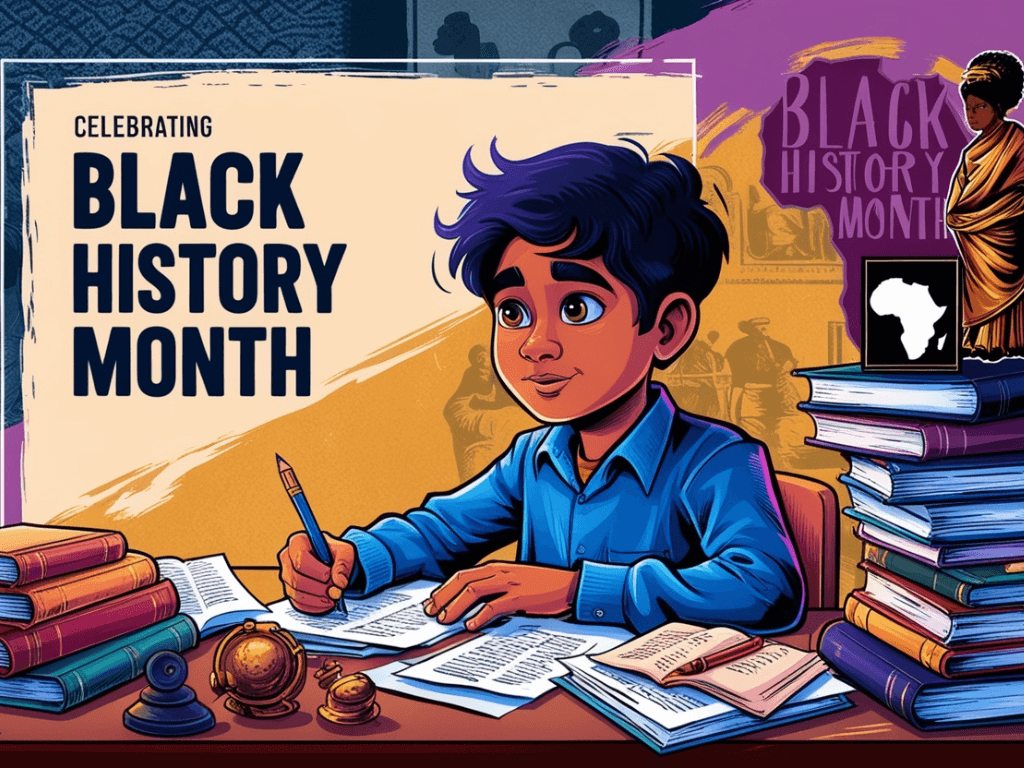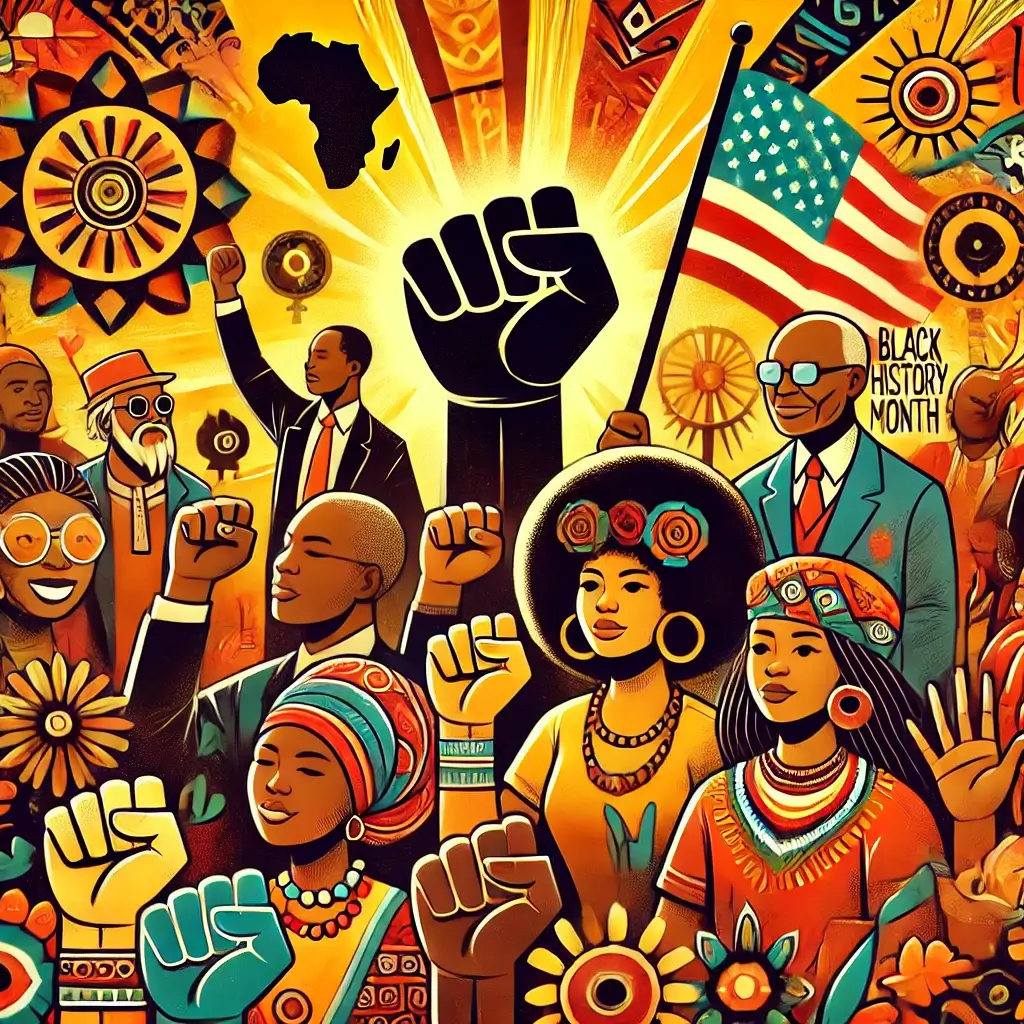
6 Ways South Asian Parents Can Teach Their Children About Black History Month
Lifestyle Feb 19, 2025
Black History Month is a time to celebrate the achievements, contributions, and resilience of Black individuals and communities. While its primary focus is on Black history and culture, it also presents a valuable opportunity for South Asian families to engage in meaningful conversations about racial justice, solidarity, and the importance of fostering connections between communities. For South Asian youth, this month is a chance to learn, reflect, and grow—not just as individuals, but as allies and advocates for a more inclusive future.
Why Black History Matters to South Asian Youth
The histories of Black and South Asian communities are deeply intertwined, from shared struggles against colonialism and systemic oppression to the fight for civil rights and social justice. Black history is not just American or African history—it is global history. It is a story of resilience, resistance, and triumph that resonates with South Asians, many of whom come from countries with their own histories of colonization and struggle for independence.
Understanding Black history fosters empathy, awareness, and a broader perspective on global struggles for justice. It also helps South Asian youth appreciate the values of resilience, leadership, and community activism that are central to Black history. By learning about these shared histories, South Asian youth can relate their own cultural experiences to those of the Black community and contribute to a more inclusive and supportive society.
Ways South Asian Parents Can Teach Their Children About Black History Month
1. Explore the Shared History of Colonialism and Resistance
Both South Asian and Black communities have faced the impacts of colonialism, racism, and segregation. Parents can introduce their children to historical figures such as Nelson Mandela, who fought against apartheid in South Africa, and Mahatma Gandhi, whose resistance against British rule influenced the American Civil Rights Movement. Learning about the activism of Dr Martin Luther King Jr. and how his philosophy was inspired by Gandhi’s nonviolent resistance can be an eye-opening experience.
2. Introduce Books and Media Featuring Black Voices
Encourage children to read books by the community authors and watch films that highlight Black history. Picture books such as Sulwe by Lupita Nyong’o or The ABCs of Black History by Rio Cortez can introduce young children to Black culture and history in an accessible way. For older kids, books like Brown Girl Dreaming by Jacqueline Woodson or The Hate U Give by Angie Thomas can help them understand issues of racial identity and justice.
3. Celebrate Black Achievements and Innovations
Take time to learn about and celebrate Black pioneers in various fields—scientists like Dr Mae Jemison (the first African-American woman in space), artists like Jean-Michel Basquiat, musicians like Nina Simone, and writers like Maya Angelou. Drawing parallels with South Asian pioneers in different fields can create meaningful discussions about breaking barriers and achieving success despite adversity.
4. Support Black-Owned Businesses and Creators
Encourage children to support and appreciate Black entrepreneurs, artists, and small businesses. Whether it’s buying from a Black-owned bookshop, following Black content creators, or learning about Black fashion designers, these small steps contribute to economic and cultural empowerment.
5. Have Open Conversations About Racism and Allyship
It’s important to talk openly with children about racism, discrimination, and the role of allies. Discuss issues like colourism, representation in media, and the importance of standing up against injustice. Many South Asian cultures have their own histories of caste discrimination and colourism, and addressing these topics can help children develop a fair and anti-racist worldview.
6. Encourage Community Engagement and Activism
South Asian families can take an active role in Black History Month by attending community events, supporting social justice causes, and volunteering with organisations that promote racial equity. Teaching children that advocacy and allyship are lifelong commitments can empower them to contribute meaningfully to social progress.

What South Asian Youth Can Learn from Black History
The Power of Resilience
Black history is a testament to the strength and resilience of a community that has faced centuries of oppression. South Asian youth can draw inspiration from this resilience, learning to navigate their own challenges with courage and determination.
The Importance of Solidarity
The civil rights movement in the U.S. and the anti-colonial struggles in South Asia both teach us that change is possible when communities come together. South Asian youth can learn the value of building alliances and standing in solidarity with others fighting for justice.
The Role of Art and Culture in Social Change
From the Harlem Renaissance to the Black Arts Movement, Black history shows how art and culture can be powerful tools for social change. South Asian youth can explore how their own cultural heritage can be a force for good in the world.
The Fight for Equality is Ongoing
Black history reminds us that the fight for equality is far from over. South Asian youth can learn to be active participants in this fight, using their voices and actions to challenge injustice wherever they see it.
Building Bridges for the Future
Black History Month is more than just a time for reflection—it’s a time to build connections and work towards a future where diverse communities support one another. South Asian youth can play a vital role in fostering allyship, challenging biases, and ensuring that the stories and contributions of Black individuals continue to be celebrated beyond February.
By embracing Black history and celebrating its lessons, South Asian families can not only raise more informed and compassionate children but also help create a world where diversity is honoured, and unity thrives.
This Black History Month, let’s commit to learning, growing, and building bridges that will carry us into a brighter, more united future.
Kiran R. Khan | Features Editor - Lifestyle
Author
Kiran R. Khan (@kiranrkhanandco) is a journalism graduate from Sheridan College, possesses an extensive freelance portfolio encompassing various topics, including lifestyle posts and profile stories. Kiran loves to craft engaging content that resonates with readers, aiming to leave a lasting impress...













































































































